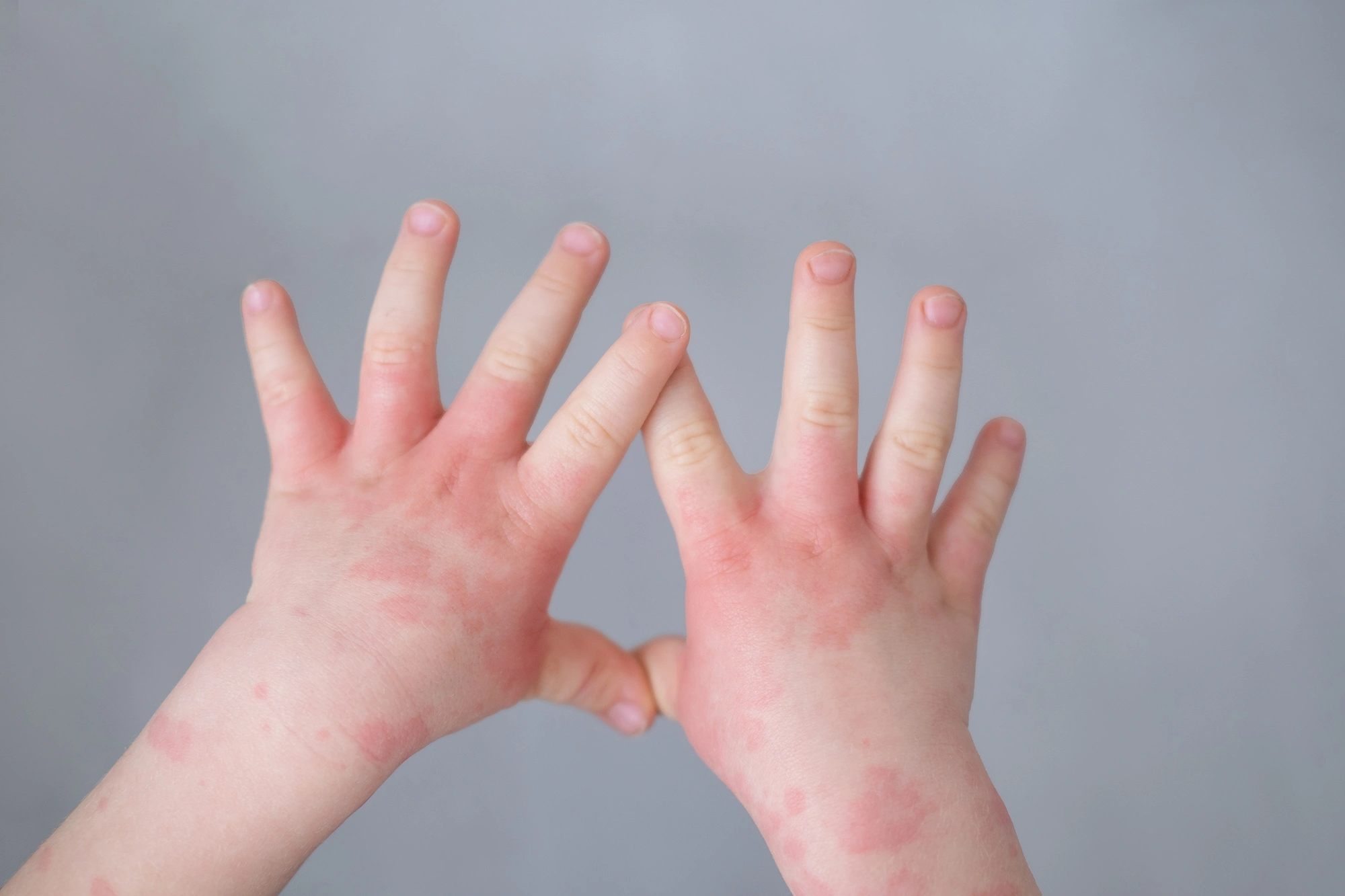What Parents Should Know About Eczema in Children

Eczema is one of the most common childhood skin conditions in Singapore, affecting about one in five children. While many cases are mild, major hospitals have observed that moderate to severe cases are becoming more common.
As a parent, it can be worrying to see your child struggle with constant itching, disrupted sleep or skin that cracks and bleeds. The good news is that with the right knowledge and treatment plan, most children can keep their eczema under control and live comfortably.
In this article, we’ll explore what every parent should know about eczema in children.
Understanding Childhood Eczema
Eczema, also known as atopic dermatitis, is a chronic inflammatory condition of the skin. It typically starts in infancy or early childhood, sometimes appearing just a few months after birth.
Symptoms may include:
- Dry, scaly patches on the face, arms, legs or behind the knees.
- Intense itchiness, which may be worse at night.
- Redness, swelling or oozing, especially during flare-ups.
Eczema is not contagious, and it is not caused by poor hygiene. Rather, it happens because of a sensitive skin barrier and an overactive immune response.
Why Do Children Get Eczema?
The causes are multi-factorial, with both genetic and environmental factors at play.
- Genetics: If one parent has eczema or another allergic condition, such as asthma or allergic rhinitis, their child has about a 40–50% chance of developing eczema. If both parents are affected, this risk rises to as high as 70–80%.
- Skin barrier differences: Children with eczema tend to have skin that loses moisture easily, making it prone to dryness and irritation.
- Immune system: In moderate to severe cases, the immune system may overreact to otherwise harmless triggers, causing inflammation and flare-ups.
Common Flare-Up Triggers in Singapore
In Singapore, climate plays a major role in eczema. Our hot and humid weather, combined with high dust mite levels, can easily aggravate sensitive skin.
Common triggers for children include:
- Heat and sweat, which worsen itchiness.
- Dust mites, which thrive in humid environments.
- Harsh soaps and bubble baths containing fragrance or strong chemicals.
- Wool or rough fabrics that rub against the skin.
- Stress, which can trigger or worsen flare-ups even in young children.
Since each child is different, parents may find it useful to keep a diary of flare-ups and triggers. Identifying these early and seeking timely help from a dermatologist can prevent flare-ups from worsening and make long-term management much easier.
Caring for Your Child’s Skin
Managing eczema at home involves consistent daily care to protect the skin barrier.
- Moisturise often: Apply fragrance-free moisturisers on your child’s skin two to three times a day. Creams or ointments are usually more effective than lotions.
- Gentle baths: Keep your child’s baths short and lukewarm. Use mild, fragrance-free cleansers instead of soap.
- Lock in moisture: After bathing, gently pat your child’s skin dry (avoid rubbing) and apply moisturiser straight away.
- Dress smart: Choose light, breathable cotton clothing and wash new clothes before your child wears them.
- Minimise scratching: Keep your child’s nails trimmed and consider cotton gloves at night if scratching during sleep is an issue.
Specialist Eczema Care in Singapore
Parents often ask about the best options for eczema treatment. At our clinic, each child’s care plan is customised, drawing from a full spectrum of options:
- Topical medications: Steroid creams or non-steroid alternatives to reduce inflammation.
- Wet wrap therapy: Applying moisturiser or medication under damp bandages to soothe severe flare-ups.
- Phototherapy: Controlled exposure to UVB light to calm inflammation.
- Oral medications: Sometimes used for short periods to control more serious cases.
- Advanced therapies: Biologics such as dupilumab and oral JAK inhibitors have shown high effectiveness in children with severe eczema, helping to reduce itch and improve skin condition.
Signs Your Child May Need Dermatology Care
You should consider seeing a dermatologist if:
- Your child’s eczema is frequent, severe or spreading.
- Flare-ups are disrupting sleep or daily activities.
- Over-the-counter moisturisers and creams are no longer effective.
- The skin appears infected (oozing, crusting, or rapidly worsening redness).
A specialist can help identify triggers, prescribe effective medication, and advise whether advanced therapies are suitable.
Specialist Care for Your Child’s Eczema
Eczema may be common in children, but effective treatment requires the right guidance and care. At Specialist Skin Clinic, our team is led by Dr Cheong Wai Kwong, a dermatologist with a special interest in eczema. With his experience in managing both mild and complex cases, and his reassuring approach with children, Dr Cheong provides care that is both thorough and comforting for young patients. Book a consultation at our eczema clinic in Orchard today to find out how we can help your child achieve calmer, healthier skin.

| Main Line | : (65) 6734 1411 |
| Fax | : (65) 6235 5900 |
| Mon - Fri | : 8:30am - 5:00pm |
| Sat | : 8:00am - 1:00pm |
| Closed on Sundays and Public Holidays | |

